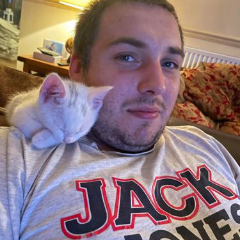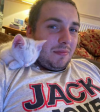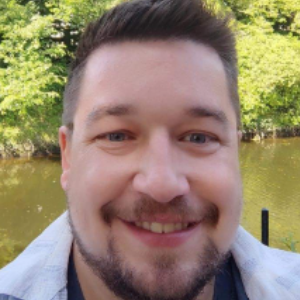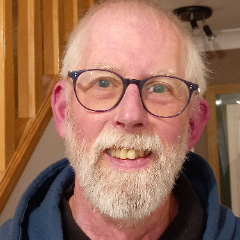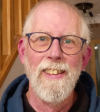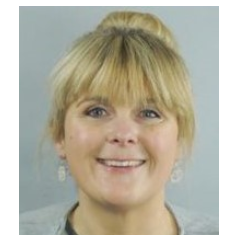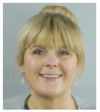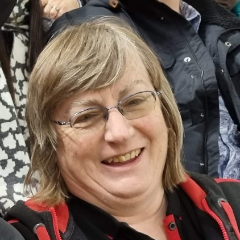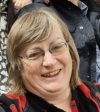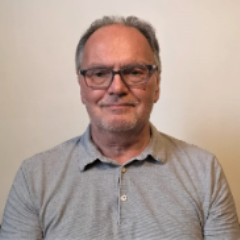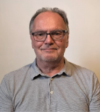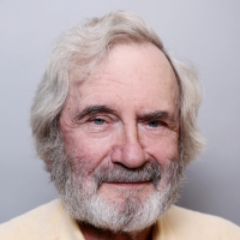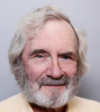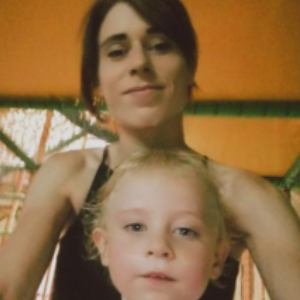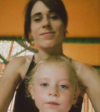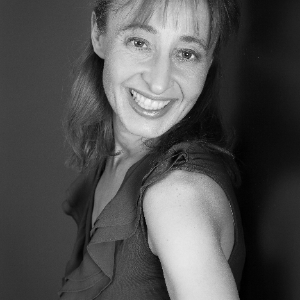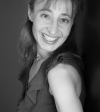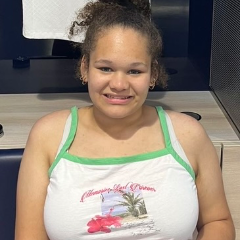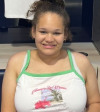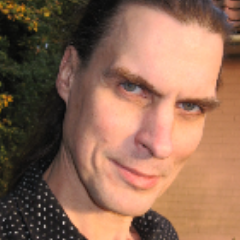DBS Certificate Provided
Teaching
more
Types
Location
Special Services
more
Can tutor in
more
Experience
Gender & Photo
Sort by
List View
Map View
Full View
Basic Maths lessons in Great Yarmouth, UK.
I have just completed my teacher training and have secured a position in a local high school. Prior to this, I have had extensive experience working in the care industry, including mental health services.
I am a qualified Primary Maths Specialist Teacher. I have taught in schools for 18 years and still teach part-time.
English and English literature lessons in Lowestoft, UK.
I taught at a secondary school in West Norfolk for 10 years but have now decided to tutor full time. I ensure my mathematics skills are up to date and I understand the latest exam requirements and teaching methods. I only tutor pupils using online sessions.
As well as experience with all English exam boards for maths I can also tutor WJEC (Welsh exam board). I also have experience with the IGCSE Maths exam and can teach Statistics GCSE.
Pupils use my tutoring lessons to ensure they fully understand what they have been taught in school, to help improve their exam grades and to assist with home schooling lessons. I tailor my tutoring for each pupil and discuss their needs and requirements with them not only during the first tutoring lesson but on an ongoing basis.
I have expreience tutoring pupils who excel at maths and pupils who struggle with their maths. I also have experience with SEND pupils including Autusim, Dyslexia, Dyscalculia and ADHD.
German, English, and English Literuture lessons in Bungay, UK.
FCL has four centres in Norfolk. We have 200+ children enrolled. Many do both maths and English. Ages range from 4 to 16, and abilities from gifted to struggling. Most are average children who can "do better".
We open at one centre or another after school on Mondays, Wednesdays and Thursdays, and on Saturday mornings. There is no fixed arrival time, and students usually drop in once a week (some come twice a week, others as little as once a month).
Parents include teachers and educational psychologists. We have local children who have been with us for years (two current children have passed the 10-year mark).
For an information pack, please call tel: *** , or e-mail ***@***
I have always had a passion for teaching, the information and knowledge I have learnt I like to breakdown to teach others.
I have experience with disability as I was a carer for my older disabled sister.
I have a lot of patience especially raising todd
I live in Bungay, a small town in Suffolk (not far from Norwich); and work on a freelance basis, to support care work for a family member. My professional background is journalism and politics - I worked for the Conservative Party (including at Number Ten Downing Street) for four years and have kept up my links with political affairs through my journalism; following the Conservative Party I worked for the BBC, in the main newsroom in London - in news and features; domestic and some foreign stories. I enjoyed this immensely and found it very rewarding, particularly the research / interviewing and developing features.
After leaving the BBC in 2007 and having my first child, and a family trauma which resulted in me having to re-locate, I continued journalism on a freelance basis and set up a family charity; raising money for child amputees in developing countries. I was a Trustee for the charity and started a new writing career, writing about the Second World War. I now have three Second World War books published, and a poetry anthology I created as a fundraiser. These are all listed below - I love helping people and learning more about them; and would like now to share my skills as a writer by doing some work as a personal tutor. Thank you!
(My journalism training was at the Journalism Training Centre, in Mitcham, South London - received a Level IV NVQ but unfortunately cannot locate the certificate.)
www.***
www.***
Law, Physical Education, and Geography lessons in Norwich, UK.
Deive M. One to One Tuition Piano - Keyboard - Guitar - Bass - Drums - Theory £36 for a one hour lesson, reduced to £33 if paid in advance, and the first one is also only £33.
Length and frequency of lessons are flexible. All ages welcome. I am able to teach students to play any songs or pieces they like and not make them learn any they don’t like. I teach them to play by ear and by notation. I also teach them how to improvise, and speak their mind musically. I have 18 years experience in this line of work, and for 17 years now it has been my full-time occupation. I have studied music at Los Angeles Musicians Institute and Cambridge Anglia Ruskin University. My name is pronounced ‘Dave Montaig’. ‘Deive’ is short for Deiven. Students can choose to learn any or all of the instruments I teach. They do not have to own an instrument to spend part of their lesson learning it. Students do not have to learn to read conventional sheet music. Furthermore, I do not teach it to beginners. I do teach it to those who want to learn it, but only after they have learnt my own ‘RSMR’ notation system. I don’t want to give them an overcomplicated, incorrect view of music that may make them give up. RSMR is the Rational System of Musical Reference, and is not just a notation system; it incorporates a new nomenclature system also. The conventional theory, nomenclature and notation of music contain some serious mistakes. The notation system is overcomplicated, presenting us with a number of things that do not exist in music itself, much of the nomenclature is naming elements of a notation system rather than elements of music itself, and the theory of pitch and the theory of rhythm presented to us do not acknowledge this. Furthermore, much of the notation and nomenclature is imprecise, impractical, inappropriate or misleading, and many of the terms used are given two or more conflicting meanings. Students do unfortunately have to learn much of the conventional nomenclature - because it is so widely used. Many musicians cannot read the notation and do not use it – including many of the world’s most popular musicians – but all musicians use the nomenclature to some extent. All students of pitch-playing instruments should be taught the conventional names of the twelve absolute pitch-tones and all students of chord-playing instruments should be taught the conventional names of the chords, but they should also be taught that these names are bad ones. There is now an enormous library of song notations that are available for free on the web which simply present the lyrics and chord-changes in the song, with the chords indicated simply by name, and every guitarist and keyboardist should learn how to read these; however, they should also learn how those chord-names are far from good ones. I have no problem with beginner guitar and bass students being taught conventional ‘tablature’ notation, and I often give them tabs that have been published on the web. The only difference with my own tablature is that it includes timing details; conventional rhythmic-timing notation is not compatible with guitar tab, but my rhythmic-timing notation is compatible with any system of pitch notation. I do teach ‘grade’ exam courses if requested, and have taught those from the Trinity, ABRSM and Rockschool awarding bodies, but I don’t teach these to an absolute beginner. They present rudimentary music theory as little more than the rules of a bad system of musical reference stated as if it is a good one. I teach the real rudiments of music, and this does not involve introducing such things as the sharp, the flat or the time signature. The sharps, flats and time signatures we are presented with in the notation are elements of notation, not music, and they are in the notation because the notation system is overcomplicated. The sharp and the flat came from the use of a pitch-staff which makes room for only seven of the twelve musical pitch-tones, and the time signature came from using different single note and rest symbols to indicate different rhythmic durations and then allowing them to change which durations they represent. The twelve absolute pitch-tones of the Western musical pitch-tone system should have been given permanent identities, not temporary identities which are dependent on which key or chord they temporarily belong to. And note duration should have been measured in beat-value, not semibreve-value. Semibreves do not exist in music. I came to realise and understand the main mistakes in the theory, nomenclature and notation of music before I ever started teaching, and this was one of the reasons I went into teaching. It caused me to confront these mistakes head on and find the solutions. Some of these solutions had already been proposed by others, and some had not. The staff design I use for keyboard and general-purpose pitch notation has been around for almost two centuries, although I have presented it in a particular way that is unique and improved, but the rhythmic-timing notation system I use with all my students, no matter what the instrument, is entirely of my own invention. I also have invented numerous other music learning aids that translate what we hear into something we can see.
Qualified Teacher
Sats marker
Prep and Secondary School Mathematics teacher
French lessons in Great Yarmouth, UK.
Biology and Maths lessons in Woodbridge, UK.
English Literature, Human biology, Sports Psychology, History, and Art lessons in Harleston, UK.
Prep for grade 5 music theory & piano grades 1-8 Or just for fun! Open to most styles.
Travel 5 miles in & around Lowestoft.
KS2 teacher in Great Yarmouth, UK.
English lessons in Great Yarmouth, UK.

